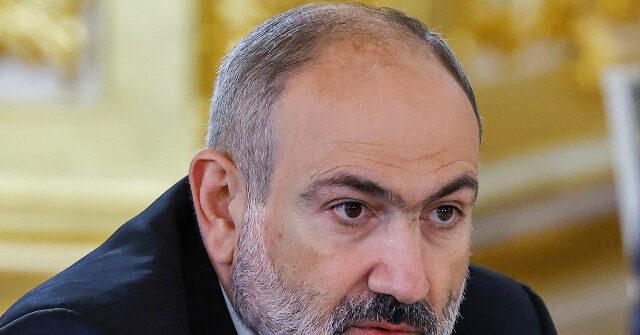Armenian Prime Minister Nikol Pashinian recently addressed his parliament, expressing that relations with Russia have deteriorated irreparably, particularly emphasizing Armenia’s impending exit from the Collective Security Treaty Organization (CSTO), a military alliance led by Russia. The catalyst for this significant shift was the CSTO’s perceived failure to support Armenia during Azerbaijan’s military actions in the disputed Nagorno-Karabakh region, known as the Republic of Artsakh to its Armenian residents. Pashinian criticized the inaction of Russian peacekeepers who did not intervene during Azerbaijan’s invasion and subsequent blockade of the region in 2022, asserting that the CSTO’s defense provisions were inadequate since the area was not classified as “officially Armenian territory.”
Highlighting the deepening rift between Armenia and Russia, Pashinian indicated that the CSTO’s reluctance to act during Azerbaijan’s aggressive maneuvers underscored fundamental issues within the alliance. Responding to Russian arguments about territorial delimitation, he stated that Armenia had crossed a “red line,” demonstrating the failure of the CSTO’s security framework to respond to genuine threats. The Secretary-General of the CSTO, Imanglhali Tasmanghambetov of Kazakhstan, asserted that despite Armenia’s lack of participation in several meetings, the country remained a formal ally, suggesting the option for Armenia to reintegrate into CSTO activities whenever it suited them. However, Pashinian clarified that Armenia had no intention of resuming its activities within the alliance, deeming future participation “increasingly difficult, if not impossible.”
In a further indication of strained ties, Pashinian confirmed that Armenia would not host the upcoming summit of the Eurasian Economic Union (EEU), a trade bloc comprised of former Soviet states. He explained that it was “inexpedient” to bring certain EEU members to Yerevan given the current geopolitical circumstances. This decision was largely interpreted as a pointed rebuff to Russian President Vladimir Putin and Belarusian dictator Alexander Lukashenko, especially following Lukashenko’s controversial visit to Nagorno-Karabakh, which angered Armenian officials. Pashinian’s refusal to host the summit showcased Armenia’s growing discomfort with Russian influence and leadership within the alliance.
Pashinian’s stance also invited speculation concerning a hypothetical arrest of Putin, following the International Criminal Court’s charges against him related to war crimes in Ukraine in 2023. Armenia’s accession to the ICC in November 2023 added a layer of complexity to its relationship with Russia, as it signified a commitment to international legal standards that could further alienate Armenian leadership from Moscow. While Pashinian remained noncommittal regarding the possibility of arresting Putin, this ambiguity reflected Armenia’s evolving stance on its diplomatic relationships.
As Armenia distances itself from Moscow, the country is seeking to bolster its ties with Western nations. One noteworthy development was a recent meeting between Armenian Defense Minister Suren Papikian and U.S. Defense Secretary Lloyd Austin, during which they discussed the strengthening of military cooperation. Austin underscored the expanding partnership, focusing on training, military education, and capacity-building efforts. Papikian confirmed that their discussions highlighted priority areas for enhancing Armenian-U.S. military collaboration, particularly regarding joint exercises and improving Armenia’s operational capabilities alongside the U.S. military.
The burgeoning partnership with the West is likely to elicit unease in Russia, which has historically positioned itself as Armenia’s primary security guarantor. Following the diplomatic engagements with U.S. officials, Moscow cautioned that Armenia’s reliance on Western partnerships could not compensate for the security roles it has traditionally upheld within the region. The shift in Armenia’s alliances signifies a broader transformation in its foreign policy, illustrating a departure from Russian influence and a shift towards fostering ties with the West amid the changing geopolitical landscape in the South Caucasus region. Ultimately, the actions and decisions taken by both Armenia and Russia in response to these developments will significantly shape their future relations and influence regional stability.

